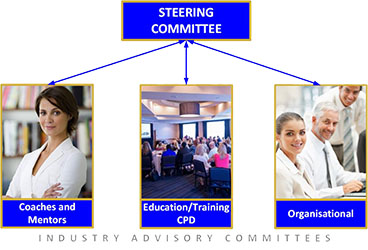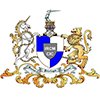Coaching and Mentoring Industry Challenges
The IRCM CIC Steering and Advisory Committees are an integral part of the Industry Direction Department. These Committees provide advice, guidance and/or recommendations for changes to the IRCM CIC’s Codes of Conduct and where required, recommendations for the industry direction.
The IRCM CIC’s challenge is to grow consumer confidence in the industry through an international industry Code of Ethics, Standards and Core Competencies; as well as providing a clear direction for the coaching and mentoring industry.
.
The challenges faced across the coaching and mentoring industry are:
within the Education sector, as education is provided by formal government-mandated education bodies and private commercial training organisations and individual coaches and/or mentors. All these types of organisations provide education/training (full in-depth and detailed courses, short courses, and workshops) to coaches, mentors, and others. The consumers are known as their students. It recognised that these students may come from outside the industry but they may also be coaches and/or mentors working within the industry.
with the Commercial Organisations that work in or are involved in or represent the coaching and mentoring industry. These challenges centre around:
- how individuals within the industry represent themselves and behave as organisations.
. - how consumers identify the competence of each organisation within the industry; whether the organisation is a single individual or a larger number.
. - organisations outside the industry who may provide one or more products and/or services to the coaching and mentoring industry, and how they manage their relationships with individuals/organisations from within the industry.
.
The challenges that centre around Education relates to how prospective students, recognised as Consumers, determine what is in the content of the courses and/or workshops; and whether the content relates to the industry requirements or not.
Education/training should be driven by the history, needs, and regulation of an industry, through the industry recognised Codes of Standards, Ethics, and Core Competencies as published by the IRCM CIC.
These organisations include, but is not exclusive to:
Consumers are those individuals/organisations who benefit from the services and/or products provided by the coaching and mentoring industry; clients, students, members of Professional Bodies/Support Groups, and staff (of all levels) of organisations.
-
- Members of Professional Bodies
- Members of Support Groups
- Students of Education Bodies/Training Organisations
- Clients of Coaches and/or Mentors
PLEASE NOTE: A consumers advisory committee will be added to the structure in a later phase of the Steering and Advisory Committee development.
Coaching and Mentoring covers every conceivable industry from personal life, through business, through sports, through personal/professional development, etc. The remit of the IRCM CIC is not to determine the standards, ethics, and core competencies of individual industries; but to ensure that the coaching and mentoring standards, ethics, and core competencies are robust.
In other words, whether a coach is a personal life coach, a business coach, a rugby coach, an athletics coach or a business mentor, an athletic mentor, etc.; the coaching and mentoring ethics, standards, and core competencies should remain the same.
.
.
Currently, all information provided by and correspondence with the IRCM CIC is in English.


